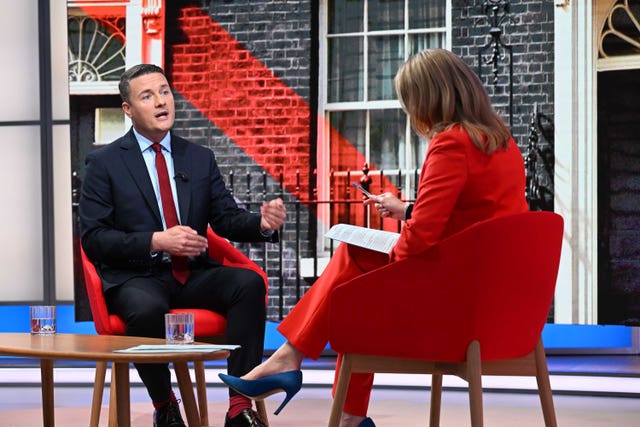
Leaders in social care have come together to call for a “step change” in the way the sector is understood and talked about by politicians.
The public must be given reasons to be hopeful about the future of social care rather than alarmed by the challenges it faces, an open letter to party leaders co-ordinated by the Local Government Association said.
Parties have faced criticism for not giving much space in their manifestos or air time in their campaigning to setting out plans on tackling issues such as costs, workforce shortages and pay in social care.
The letter, which has signatories including Care England, Carers UK and the Care Provider Alliance, said those within the sector have been struck by social care not being “as prominent as it should be in debates about the future of our communities”.
But they add that when it does feature “it tends to be presented as a service that is broken and in need of being fixed, or defined in narrow terms around questions about, ‘who pays for social care?’”
The organisations, which also include the National Care Forum, Association of Directors of Adult Social Services (Adass) and Skills for Care, said that is not the full picture and called for some focus on the positive effects good care can have on people.
The letter stated: “We write as organisations bound together by a common desire to see a step change in the way that adult social care and support is understood, talked about, championed and prioritised at the national political level.”
In their call, they added: “While we all recognise – and grapple daily with – the many pressures on the system and their consequences, we also see social care at its best, transforming countless lives for the better.
“When resourced adequately and organised well, social care is the means through which adults of all ages, with different conditions and reasons for drawing on care, are able to live their best life.
“That is a pursuit to be proud of and one which generates and replenishes energy, commitment and dedication.”
Signatories including the county and district councils networks argued that, when viewed in this way the “wider value” of social care is seen, listing the benefits it provides for family and community relationships, supporting local economies through employment, and easing pressures on other parts of the public sector, from the NHS to housing.

While Liberal Democrat campaign pledges on free personal care have been hailed as ambitious and brave, the sums to make them happen “simply don’t add up”, health think tank the Nuffield Trust has previously said.
When their manifesto was published, the Conservatives were accused of restating old promises and making “vague pledges”, while Labour had come up with “a plan for a plan”, according to organisations within the sector.
Both the Tories and Labour have indicated they plan to go ahead in October 2025 with the previously-announced cap on social care costs of £86,000 on the amount anyone in England has to spend on their personal care over their lifetime.
Shadow health secretary Wes Streeting admitted at the weekend that he would have liked Labour’s manifesto – which pledged to work towards the creation of a National Care Service over a decade – to be “more ambitious” on social care.
Lyn Romeo, who stepped down from her role as chief social worker for adults in England in January, recently said it is “absolutely key that the next government must prioritise (social care)”, telling the PA news agency a focus on the NHS “will not be enough if they don’t, alongside of that, prioritise social care and getting social care on a sustainable footing”.
The coalition letter urged political leaders to “avoid the trap of politicising the debate about the future of care and support”.
They added: “We all know from experience that the net result of that is greater apathy and disappointment.
“Instead, extol the virtues and value of care and support as we have described them above.
“Recognise the role of social care at every level of society. Give people reasons to be hopeful, not alarmed. Above all, make adult social care about all of us.”
A recent briefing by the King’s Fund health charity heard that social care, while a concern for people, is not a top issue for voters when it comes to who they might lend their support to.
Addressing the briefing, Anna Quigley, research director at Ipsos Mori, said the reasons may be that not as many people come into contact with social care in the same way as the NHS, and suggested there is also “a fundamental lack of understanding about the social care system and how it works”.
She said about four in 10 people believe social care is free at the point of use, like the NHS, “so they don’t necessarily recognise what’s in store for them should they need it”.
A separate letter to party leaders, co-ordinated by the Care and Support Alliance – which represents more than 50 of Britain’s leading charities, said it will be a “betrayal” if action is not taken by the next government.
It stated: “Promise that you will make change happen in the next parliament, come up with sustainable funding and support the social care workforce.
“Millions of older and working-aged disabled people and their carers desperately need a social care system that works, and a failure to act would be a betrayal.”

Enjoy the convenience of having The Sunday Post delivered as a digital ePaper straight to your smartphone, tablet or computer.
Subscribe for only £5.49 a month and enjoy all the benefits of the printed paper as a digital replica.
Subscribe